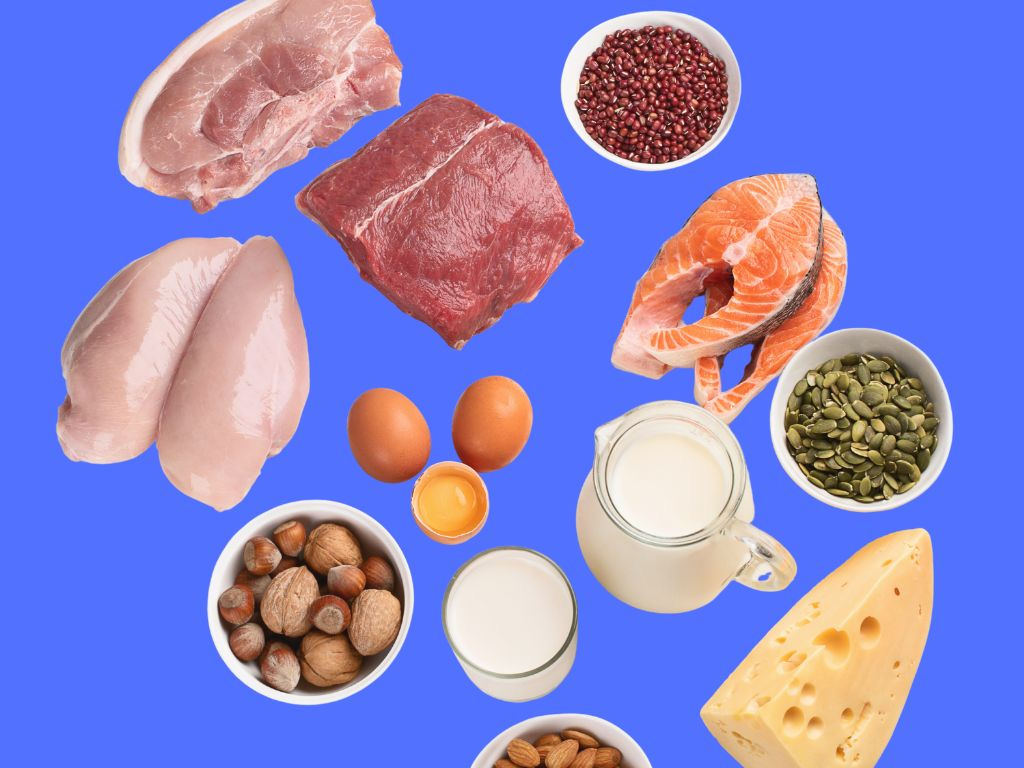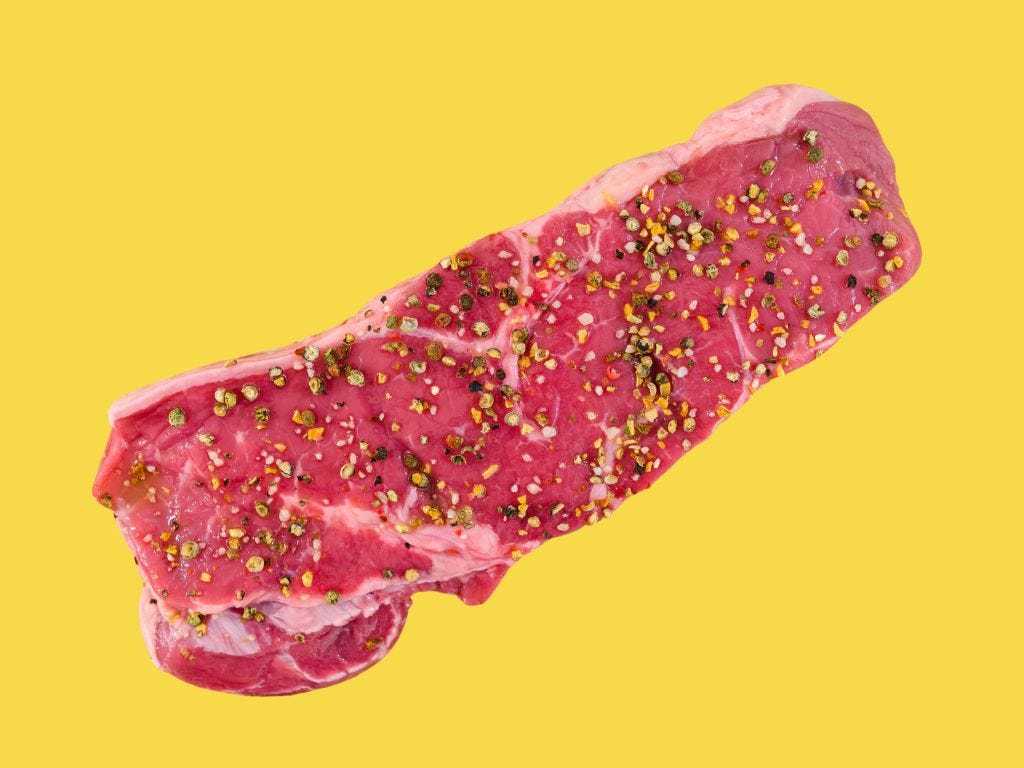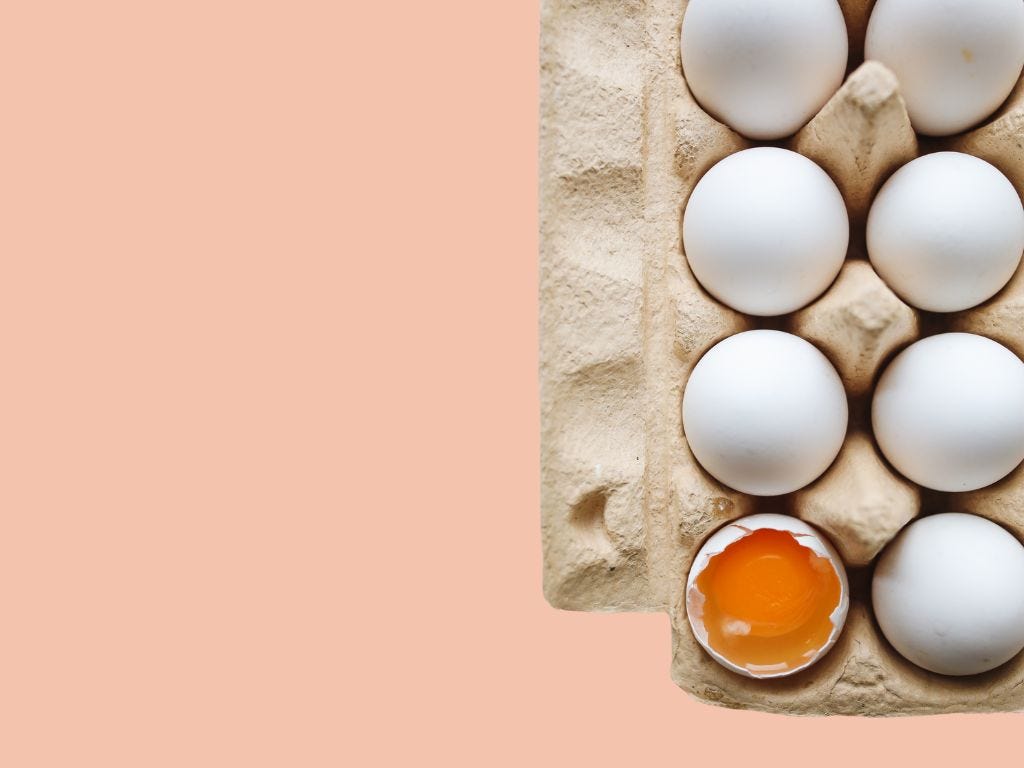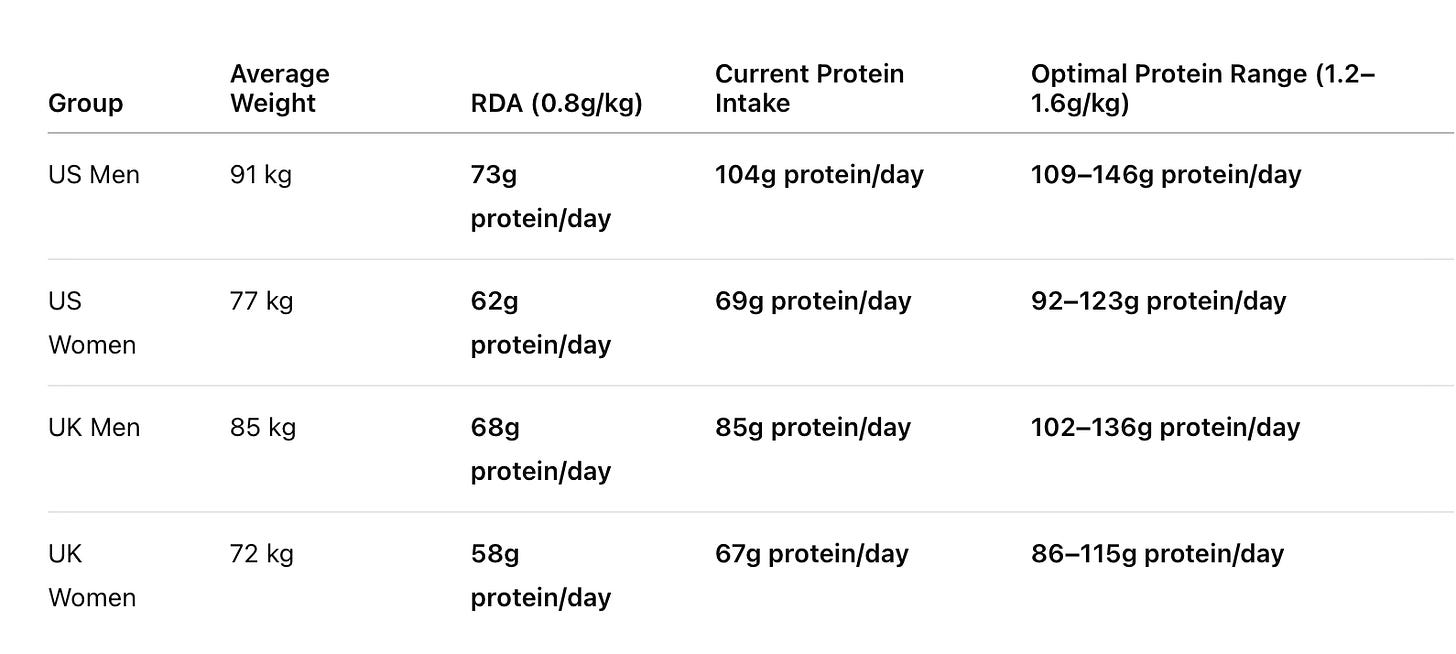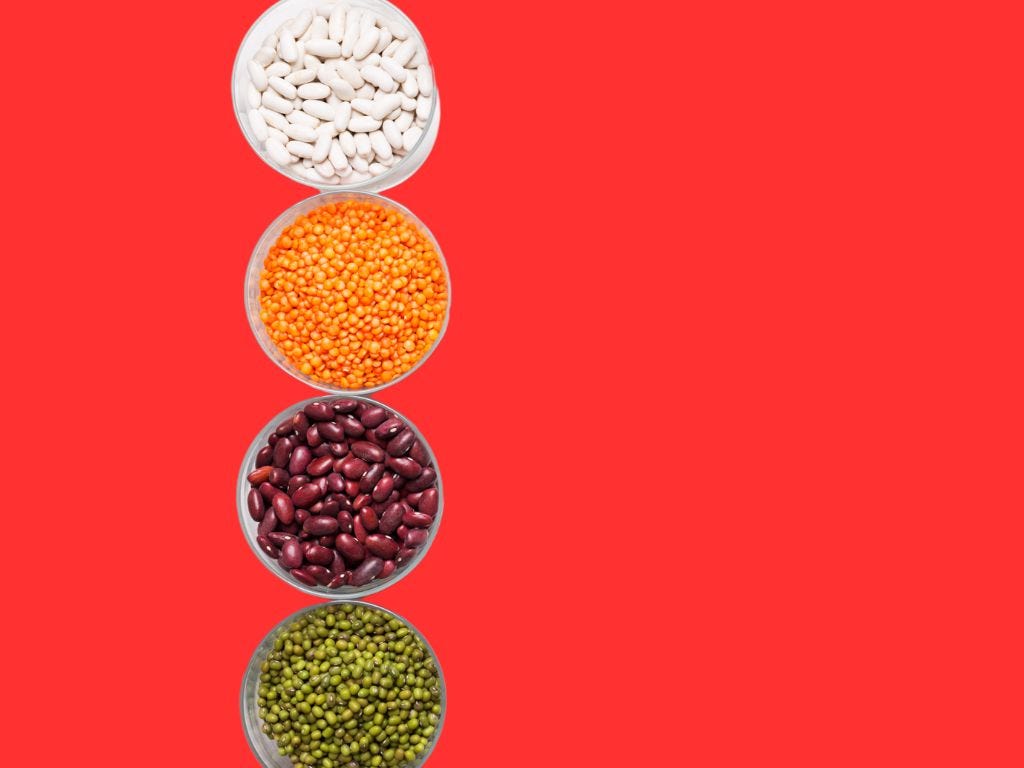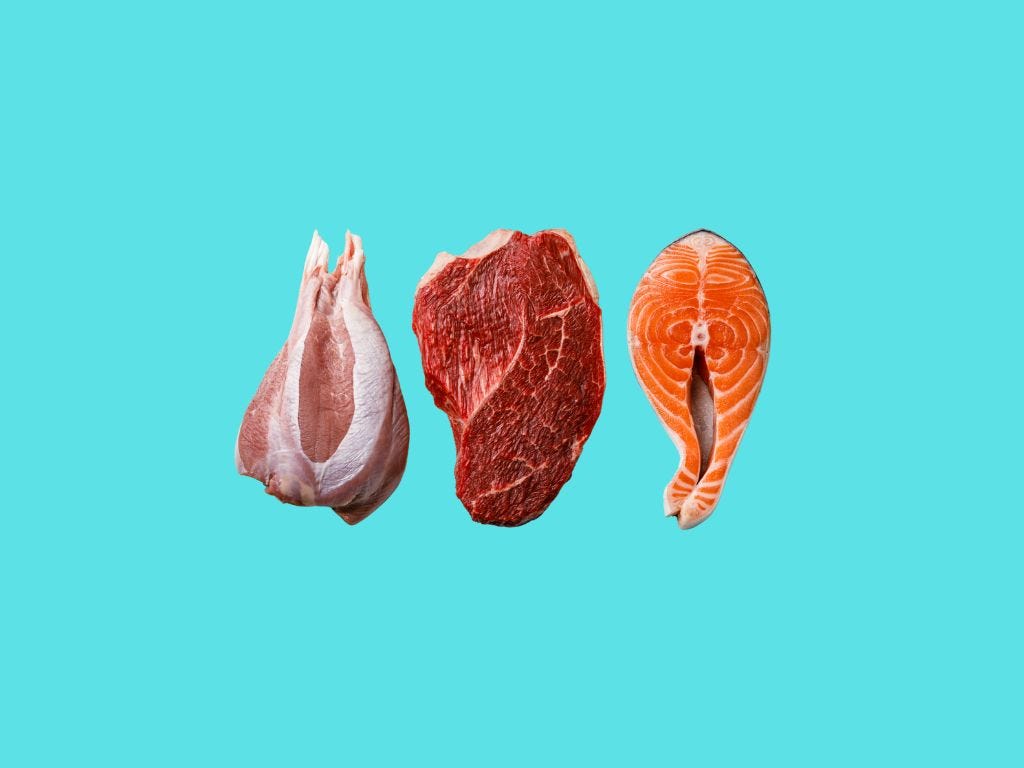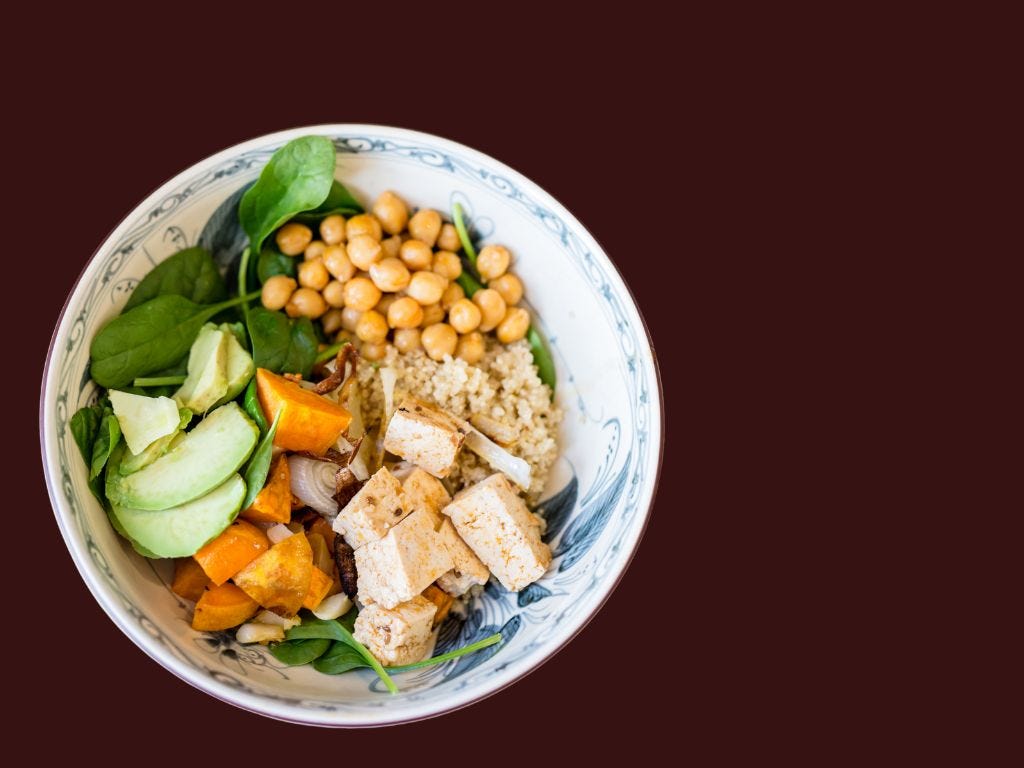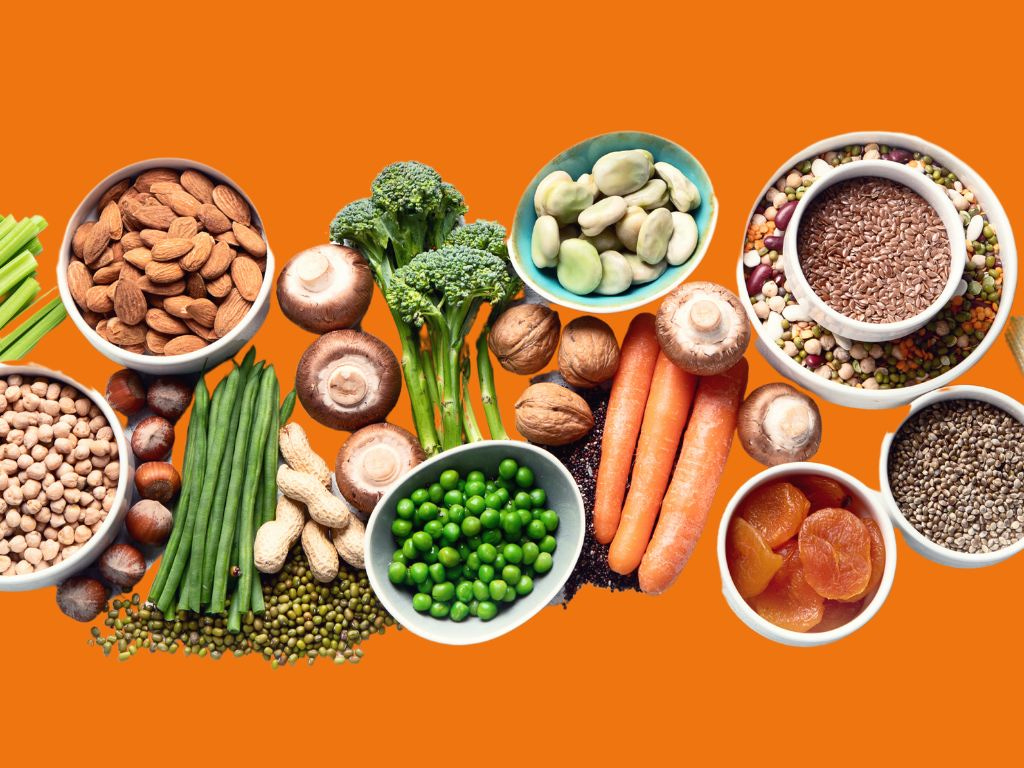The truth about protein 🧠 and what you might be missing
How much you need, what to eat, and what to skip
Everywhere you look, we’re told to eat more protein.
There are high-protein labels on nearly everything, yoghurts, cereals, and even bottled water (as if water isn’t healthy enough already).
Some say more protein is the key to longevity. Others argue it's just smart marketing driving sales.
But are we fixating on a problem that doesn’t exist?
And what does this mean for your gut microbes?
The answer lies somewhere in between.
What we’ll cover today:
What is protein and why it matters
How much protein do you really need (and are the current guidelines enough?)
Are you getting too little? and can you have too much?
Which protein-rich foods to eat more of, and how (paid subscribers)
What is protein?
Protein is a nutrient your body needs to grow, repair, and stay strong.
Protein gives structure to your body’s tissues. It helps build your muscles, skin, hair, nails, and organs.
Protein is found in every cell in your body. It helps make important molecules like enzymes, hormones, and parts of your immune system that keep you alive and healthy.
Without enough protein, your body struggles to do these things properly. Over time, this can mean weaker muscles, slower healing, and a weaker immune system.
Protein is not just for bodybuilders. Everyone needs it, especially as we get older and naturally begin to lose muscle.
There’s zero doubt that eating enough protein is essential for your health.
How much do you actually need?
The current Recommended Dietary Allowance (RDA) is 0.8g of protein per kg of body weight per day.
But that’s set to primarily prevent protein deficiency, it’s not aimed at helping you feel your best.
Newer research shows that aiming for 1.2-1.6g per kg of body weight per day better supports muscle maintenance, strength, appetite control, and healthy ageing.
For most people, 1.2-1.4g per kg of body weight per day is enough. If you’re training hard, building muscle, or getting older, aim for closer to 1.6.
Work out your daily protein needs: Multiply your weight in kilograms by 1.2 to 1.6 to find your daily protein target e.g. 80kg x 1.2 = 96g protein per day.
US men (average weight: 91 kg) = 109-146g protein/day.
US women (average weight: 77 kg) = 92-123g protein/day.
UK men (average weight: 85 kg) = 102-136g protein/day.
UK women (average weight: 72 kg) = 86-115g protein/day.
Are we already getting enough?
You’ll be surprised to hear this considering all the protein hype, but technically, on average, people already meet or exceed the RDA (0.8g protein per kg of body weight per day).
In the US: On average, men eat 104g of protein per day, and women 69g of protein daily (NHANES 2017-2018, age 40-49yrs).
In the UK: On average, men eat 85g of protein per day, and women 67g of protein daily (NDNS Years 9-11, age 19-64yrs).
Based on average body weights and protein intakes, we’re currently getting around 0.9–1.1g of protein per kg of body weight per day, with men at the top end and women closer to 0.9g per kg.
That means, on average, we fall slightly short of the optimal 1.2g of protein per kg of body weight per day - by 5g for US men and 23g for US women.
It’s a similar story in the UK, men are under the optimal by on average 17g and women by 19g.
Bottom line? On average, we’re comfortably above the RDA, so it’s not the dramatic shortfall it’s made out to be. But we’re not quite reaching what’s optimal for muscle, strength, and healthy aging - particularly for women and British men - and that could make a difference over time.
Is too much protein harmful?
For healthy people, eating high amounts of protein isn’t harmful (even at 3.4g per kg of body weight per day), and the idea that it damages your kidneys is a myth.
One key exception is if you already have kidney disease, then, a lower-protein diet is often recommended.
But eating tonnes of protein doesn’t mean more and more muscle, muscle gains start to plateau at about 1.3g per kg of body weight per day.
And cramming in loads of protein can sometimes crowd out other important foods, like fibre-rich beans, veg, and whole grains. So while more protein is safe, balance still matters for overall health.
How protein affects your gut microbes
Most protein is absorbed earlier in digestion, before it reaches your gut microbes. Fibre, on the other hand, travels down to the large intestine, where it feeds your gut microbiome.
Some protein still reaches your gut microbes, especially on a high-protein diet.
Protein isn’t “bad” for your gut microbiome. But when a high-protein diet is low in fibre, like many Western diets, it can shift the microbiome in less healthy ways.
Without enough fibre, gut microbes turn more to protein, producing potentially harmful molecules like ammonia, amines, and phenols.
It’s all about balance - getting enough fibre and protein to support both a “healthy” gut microbiome and overall health.
Plant vs animal protein: which is better?
Both plant and animal proteins can help you meet your needs, but they aren’t exactly the same.
Animal proteins (like meat, fish, dairy, and eggs) are considered “complete” because they naturally contain all the essential amino acids your body can’t make.
Plant proteins (like beans, lentils, nuts, and grains) sometimes have slightly lower amounts of certain amino acids, but eating a variety easily fills the gaps.
If you get enough protein above or around 1.0g per kg of body weight per day (as many people are), it doesn’t matter if it’s from plants or animals for building muscle. If you’re not meeting this amount, animal protein may be slightly more effective, especially in younger people.
But muscle building isn’t the only factor to think about when choosing your protein sources.
Unlike animal protein, plant protein tends to be packed with fibre too, making adding in more plant protein a win-win for getting both protein and fibre in one go.
Get the best of both worlds: focus on plant proteins
You absolutely don’t need to give up animal protein (unless you want to) - this is about adding in, not cutting out.
Many plant foods are naturally rich in protein and come bundled with fibre, healthy fats, and other nutrients your gut loves.
Here are some of the best high-protein plant foods to keep on regular rotation:
Keep reading with a 7-day free trial
Subscribe to Second Brain to keep reading this post and get 7 days of free access to the full post archives.





